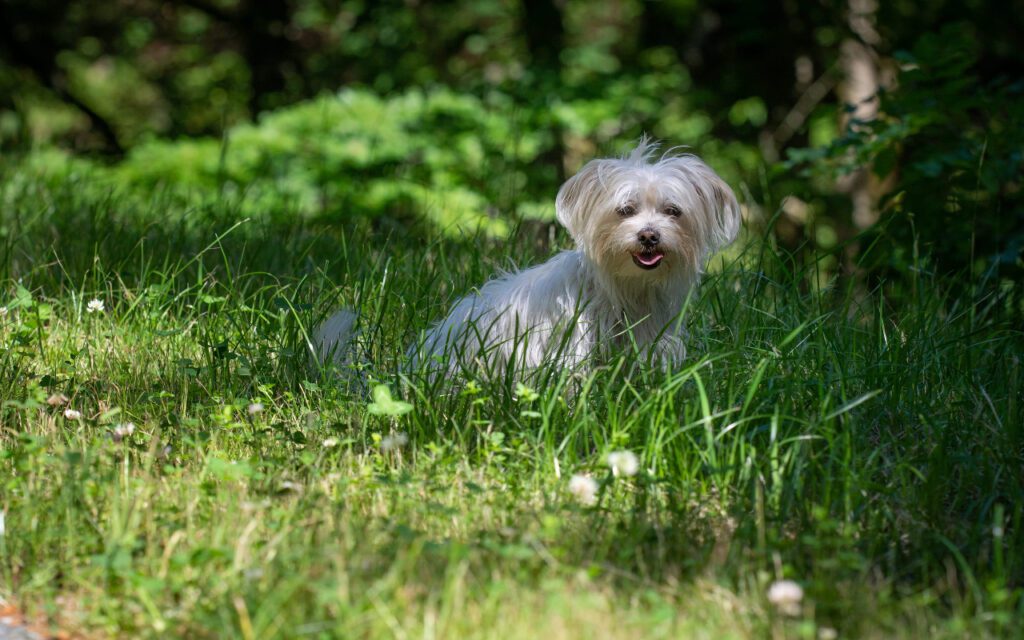As a dog owner, you’ve likely heard of kennel cough and its potential to affect your beloved pet. But how exactly do dogs catch this contagious respiratory infection?
In this article, we’ll explore the various ways in which kennel cough can spread from one dog to another, highlighting the risk factors and environments that contribute to its transmission.
By understanding the mechanics behind kennel cough infection, you can take proactive measures to protect your canine companion from this common yet preventable illness.
Stay tuned as we delve into the world of kennel cough transmission and equip you with the knowledge to safeguard your dog’s health.
Key Takeaway
| How Can Dogs Catch Kennel Cough | Key Takeaways |
|---|---|
| Direct Contact | Direct Contact with Infected Dogs |
| Airborne Transmission | Respiratory Droplets in the Air |
| Indirect Contact | Contaminated Surfaces and Objects |
| Environmental Factors | Crowded and Poorly Ventilated Spaces |
| Health and Stress Conditions | Stress and Weakened Immune System |
How Can Dogs Catch Kennel Cough

Dogs can catch kennel cough through direct contact with infected dogs, inhaling respiratory droplets, contact with contaminated surfaces, crowded and poorly ventilated spaces, and having a weakened immune system.
Here are all the ways dogs catch kennel cough:
Direct Contact with Infected Dogs
Dogs can catch kennel cough through direct contact with an infected dog. This includes activities such as playing, sniffing, or licking each other, which can easily transmit the bacteria or virus responsible for the infection.
Respiratory Droplets in the Air
Kennel cough can also spread through respiratory droplets from an infected dog’s coughing or sneezing. These airborne particles can be inhaled by a healthy dog, leading to infection.
Contaminated Surfaces and Objects
Dogs can catch kennel cough from contaminated surfaces or objects, such as shared toys, water bowls, or bedding. The bacteria or virus can survive on these items for some time, making it easy for other dogs to become infected when they come into contact with them.
Crowded and Poorly Ventilated Spaces
Kennel cough is more likely to spread in crowded or poorly ventilated spaces, such as boarding facilities, dog parks, and grooming salons. In these environments, dogs are in close proximity to one another, increasing the chances of transmission.
Stress and Weakened Immune System
Dogs with weakened immune systems or those experiencing stress are more susceptible to catching kennel cough. Factors such as travel, boarding, recent surgery, or underlying health issues can compromise a dog’s immune system, making it more difficult for them to fend off the infection.
How Did My Dog Get Kennel Cough at Home?

While it may seem puzzling that your dog contracted kennel cough at home, there are several possible explanations for this. Some potential reasons include:
Exposure to Infected Dogs
If your dog has recently interacted with other dogs, such as during a playdate or a walk, they might have come into contact with an infected dog. The bacteria or virus causing kennel cough can be transmitted through direct contact or respiratory droplets. This leads to infection even after returning home.
Contaminated Objects or Surfaces
Your dog might have been exposed to contaminated objects or surfaces while outside the home, such as at a park or during a visit to the vet. They could have sniffed or licked these contaminated surfaces, bringing the infection back home. Additionally, if you’ve touched a contaminated surface or another infected dog, you might inadvertently transfer the infection to your own dog.
Carrier Dogs
Some dogs can carry the bacteria or virus responsible for kennel cough without showing any symptoms. If your dog has encountered a carrier dog, it might have contracted the infection from them, even if the other dog appeared healthy.
Weakened Immune System
A weakened immune system can make your dog more susceptible to infections, including kennel cough. Factors such as stress, aging, underlying health issues, or recent medical treatments can compromise their immune system, increasing their risk of contracting the illness.
To prevent future instances of kennel cough, make sure your dog’s vaccinations are up-to-date, maintain good hygiene, and minimize their exposure to crowded or poorly ventilated spaces where the infection is more likely to spread.
How Easily is Kennel Cough Transmitted?
Kennel cough is highly contagious and can be transmitted through direct contact with an infected dog or through contact with contaminated objects such as food bowls, toys, or bedding.
Some key factors that contribute to the ease of transmission include:
Respiratory Droplets
Kennel cough can spread through respiratory droplets from an infected dog’s coughing or sneezing. These airborne particles can travel through the air and be inhaled by nearby healthy dogs, leading to infection.
Direct Contact
Direct contact with infected dogs, such as playing, sniffing, or licking each other, can easily transmit the bacteria or virus responsible for kennel cough.
Contaminated Surfaces and Objects
The bacteria or virus causing kennel cough can survive on surfaces and objects for extended periods, making it easy for dogs to become infected when they come into contact with contaminated items like shared toys, water bowls, or bedding.
Crowded and Poorly Ventilated Spaces
Transmission of kennel cough is more likely in crowded or poorly ventilated spaces, such as boarding facilities, dog parks, and grooming salons. In these environments, dogs are in close proximity to one another, increasing the chances of infection.
Due to its highly contagious nature, it’s essential to take preventive measures, such as keeping your dog’s vaccinations up-to-date, practicing good hygiene, and being cautious about their interactions in shared spaces with other dogs.
How Does a Dog Get Kennel Cough Without Being Around Other Dogs?
Although direct contact with other dogs is the most common way for kennel cough to spread, there are other ways your dog can contract this illness without being around other dogs:
- Indirect contact: Kennel cough can also spread through indirect contact with contaminated surfaces such as food bowls, water dishes, toys, bedding, or even your clothing and shoes. The pathogens can survive on these surfaces for varying periods, and if your dog comes into contact with them, they can become infected.
- Airborne transmission: Kennel cough is an airborne disease, which means it can spread through the air. When an infected dog coughs or sneezes, the pathogens can become airborne and travel across distances. If your dog inhales these airborne particles, it could contract kennel cough.
- Wildlife: Some animals like foxes, rabbits, and rodents can carry the Bordetella bacteria without showing any symptoms. If your dog comes into contact with such wildlife or their droppings, it can get kennel cough.
To reduce the risk of your dog contracting kennel cough, practice good hygiene by regularly cleaning their living spaces and belongings, avoid contact with sick dogs, and consider vaccinating your pet against the Bordetella bacteria and canine parainfluenza virus.
Can a Dog Randomly Get Kennel Cough?
While it’s less common for a dog to randomly get kennel cough without exposure to other dogs or contaminated environments, it’s not impossible. Kennel cough is highly contagious and can be transmitted through various means, such as airborne particles, contaminated surfaces, or contact with infected wildlife.
If your dog has a weakened immune system, it may be more susceptible to contracting kennel cough from indirect sources. A dog could develop symptoms similar to kennel cough due to an underlying health issue or an unrelated respiratory infection. This might give the impression of a random onset of kennel cough.
To minimize the chances of your dog contracting kennel cough, maintain good hygiene, clean their living environment regularly, and avoid contact with sick dogs.
Additionally, consult with your veterinarian about vaccinating your dog against the pathogens responsible for kennel cough, as this can provide some protection against the disease.
In Conclusion
Understanding how dogs catch kennel cough is essential to ensure your pet’s well-being and prevent the spread of this highly contagious infection.
By being aware of the risk factors and environments that facilitate kennel cough transmission, you can take necessary precautions to safeguard your dog’s health.
Always keep your pet’s vaccinations up-to-date, and practice good hygiene. Be cautious about their interactions in shared spaces with other dogs.
With the right knowledge and a proactive approach, you can help your canine companion enjoy a healthy life.




Leave a Reply